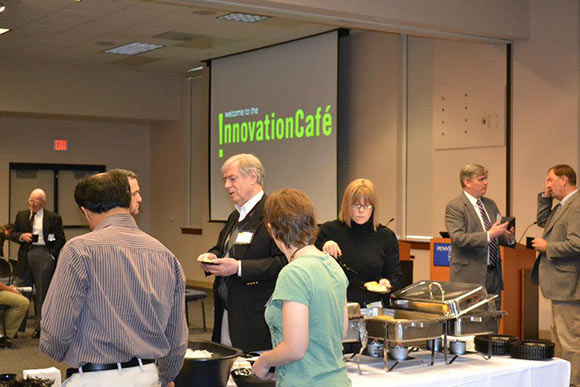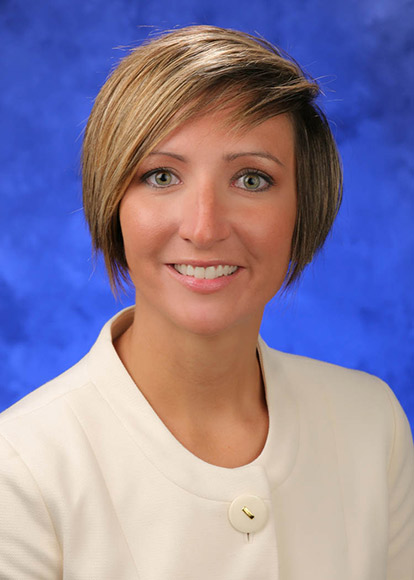Rising from the undulating farmlands in Hershey, most well-known as Chocolatetown, USA, is the Penn State Hershey Medical Center, which includes the College of Medicine and Children’s Hospital. Just 10 miles east of Harrisburg, the institution employs nearly 9,000 and attracts more than $100 million annually in basic and clinical research awards.
But for Penn State Hershey to continue to advance groundbreaking technologies, devices, treatment and research, it needs to tap into the collective innovative power of Central Pennsylvania, which has an increasing number of related assets that are being drawn together through a new program.
Penn State Hershey’s Innovation Café aims to connect faculty and staff with the surrounding community’s entrepreneurial ecosystem, which includes regional universities, investors, life science incubators and other resources that help bring innovation to market and support commercialization.
“There’s a lot of interest and enthusiasm in the area but it seems like there can be more efficiencies,” says Sara Love, associate director of business development for Penn State Hershey's Department of Technology Development. “One of the biggest challenges is getting all those groups to work together and build resources.
“It’s an awareness factor. A lot of people don’t think this type of activity, whether it’s biology or life sciences, is happening in Central Pa. ”
The Innovation Café launched last year with funding from the Central Pa.-based Keystone Innovation Network and its next scheduled event is May 8 at the Penn State Hershey University Conference Center. The featured speaker is Michael Wolf, the Acting Secretary for the Pennsylvania Department of Health.
With nearby like-minded institutions like the Hershey Center for Applied Research, Central Pa. Life Sciences Greenhouse, and Harrisburg University of Science and Technology, there is a surprisingly rich supply of brainpower and know-how in the local commercialization space.
Typical Innovation Café sessions include networking, discussion of industry innovations and business trends and regulations, highlights of regional startup activity, introduction of regional life sciences and technology stakeholders, and other commercialization opportunities.
At January’s Innovation Café, Elisabeth Whyte, a professor at Penn State’s main campus in University Park, shared how she used crowdfunding to support her research on Autism, while Alon Hillel-Tuch, the cofounder of crowdfunding startup RocketHub, offered tips on using crowdfunding in academia.
Love, who came to Penn State Hershey in late October from Harrisburg University, where she managed their experiential program that brought industry and students together, is charged with building programs that connect. Just last month the school launched an Entrepreneur in Residence program through Penn State Hershey’s Office of Technology Development to assist faculty entrepreneurs and startups on the path of licensing and commercialization.
The first to take on that role is Gregory Jackson, an associate professor of ophthalmology and Chief Scientific Officer at MacuLogix, a company focused on commercialization a breakthrough diagnostic tool for early stage age-related macular degeneration. Jackson initiated the research at the University of Alabama-Birmingham and further developed it at Penn State-Hershey.
“We’re trying to build on all stages of the commercialization timeline,” says Love. “There are organizations in Central Pa. that touch on all those stages of life in the commercialization continuum. We’re trying to bring them all to one place.”
JOE PETRUCCI is managing editor of Keystone Edge. Send feedback here.


